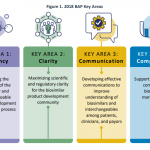Raised Blood Pressure and Arterial Stiffness Correlate with Loss of Kidney Function
Aging is often accompanied by a decline in kidney function and raised blood pressure. These two factors are interconnected, with one influencing the other in a complex relationship. The kidney plays a crucial role in regulating blood volume, which impacts blood pressure. As we age, the mechanisms responsible for maintaining this balance can become compromised, leading to elevated blood pressure. This, in turn, can further damage the kidney and disrupt the body’s blood pressure control systems. A study focusing on individuals aged 75 and older found that elevated central aortic stiffness and high central systolic blood pressure were associated with a greater decline in kidney function. Identifying older individuals with these risk factors could help in implementing interventions to slow down vascular aging and prevent kidney function decline.
Cardiovascular diseases can impact kidney function, highlighting the importance of understanding the relationship between hemodynamic parameters and changes in kidney function in older individuals. The study observed that high central systolic blood pressure and aortic pulse wave velocity, indicators of arterial stiffness, were linked to a greater decline in estimated glomerular filtration rate (eGFR). This suggests that monitoring these parameters in older individuals could help in identifying those at risk of kidney function decline and guide interventions such as intensive blood pressure management to protect kidney health.





